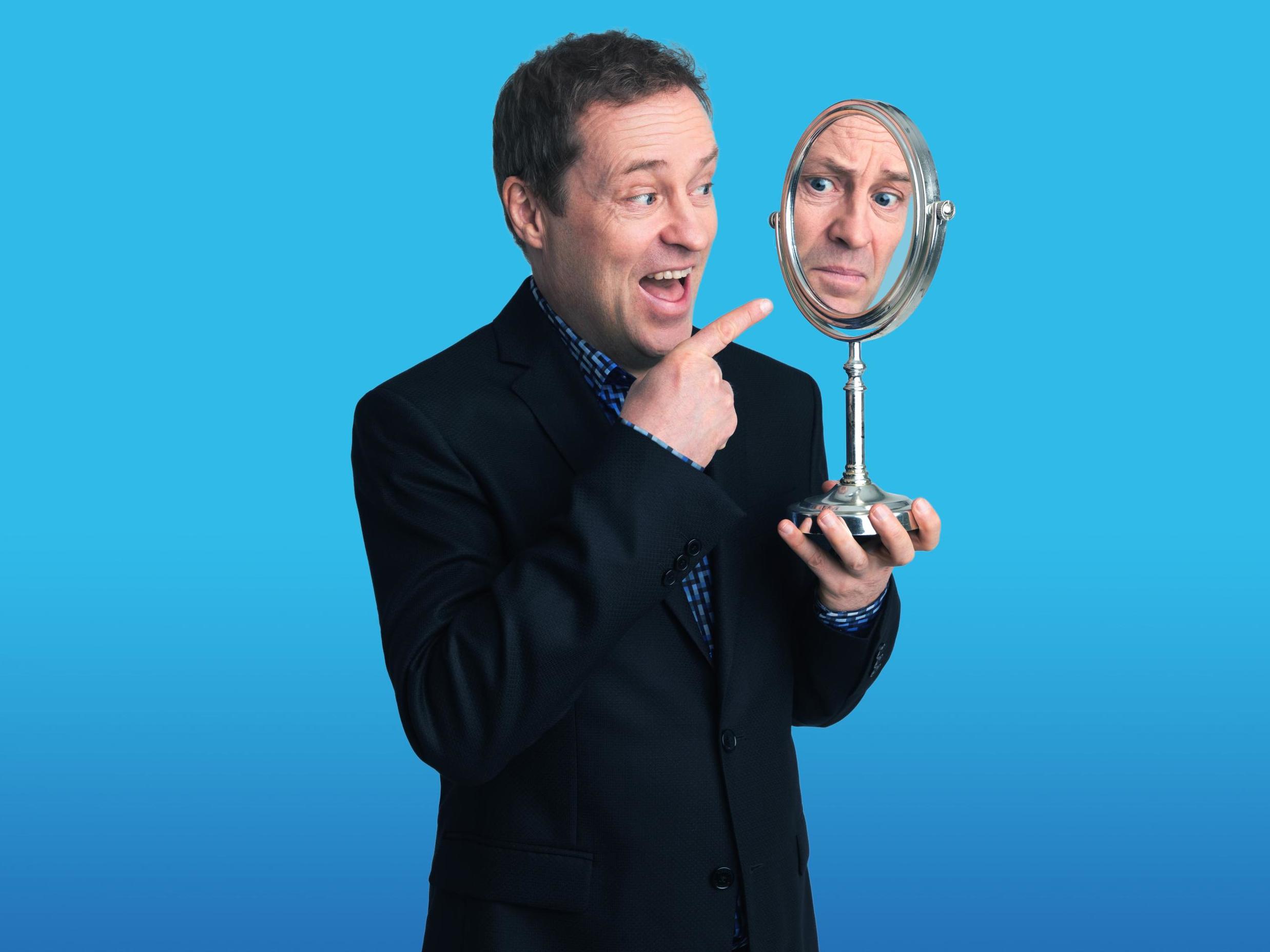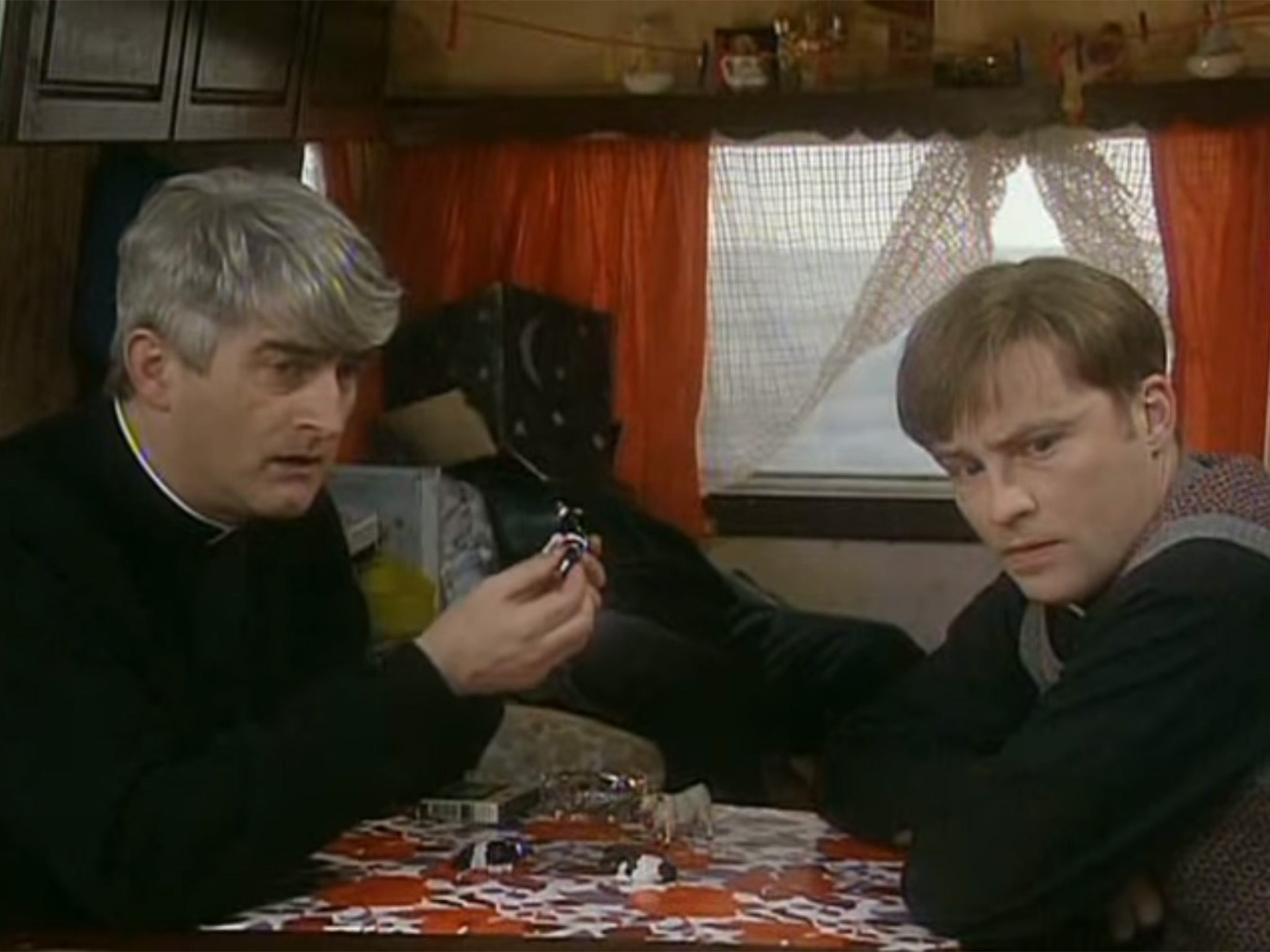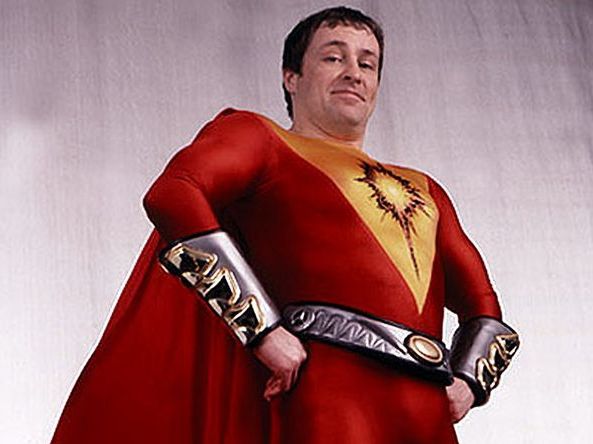Ardal O’Hanlon: ‘Trump is clearly the biggest liar in the world’
The star of Father Ted talks to Charlotte Cripps about Brexit, Death in Paradise, and why he keeps his political opinions to himself... usually


When Ardal O’Hanlon started out as a stand-up comedian, he never imagined having a TV career. Then in 1995 he was discovered and cast in one of the most popular British sitcoms of all time, Father Ted. In the pantheon of comic creations, his character Father Dougal, the simpleton priest, is up there with Basil Fawlty, Rodney Trotter, Edina “Eddie” Monsoon and Captain Mainwaring.
“I was genuinely shocked to even be in the frame for a sitcom role on British TV,” says the Irish actor, 54, who has since gone on to star in the hit BBC show Death in Paradise. “I had no experience of acting. I had to pinch myself every day that I was part of this thing,” he says. “I didn’t even think it was a remote possibility. I was focused on stand-up.”
He was part of the show for three series, until his co-star, Dermot Morgan (Father Ted), suddenly died of a heart attack. Now, in between filming Death in Paradise, in which he plays fish-out-of-water detective Jack Mooney, O’Hanlon has returned, once again, to live stand-up comedy. He describes his new UK tour, The Showing Off Must Go On, as “a love letter to the English” and “observational with plenty of absurdity about Brexit, Donald Trump and Boris Johnson”.
“The English, being the most practical people in the world, came up with parliamentary democracy and codified football and Cadbury’s Creme Egg. And yet they voted for Brexit. I was saddened and surprised and ultimately what I’m beginning to realise is that the English are just as irrational as the rest of us. Welcome to our world,” he says. “Obviously the challenge for a stand-up comedian like me is to convey some of that bittersweet sensibility through the medium of jokes, at a high rate per minute, to a mixed audience of Leavers and Remainers without losing all the goodwill you’ve earned during the show or losing momentum. It’s a high-wire act.”

The actor, who is still “compulsively drawn to stand-up” and gets his high from the “irreplaceable feeling” of connecting to his audience, says that his desire to perform is an act of rebellion against his background.
Born in the small town of Carrickmacross, in the Ulster border county of Monaghan, O’Hanlon was actively discouraged from showing off as a child.
“Even when we had new clothes, we were told not to wear them. You just didn’t draw attention to yourself,” he recalls. “Showing off was the worst thing you could do. We could put the clothes in the drawers – but not wear them.”
As one of six children, O’Hanlon wanted a more “bohemian lifestyle” and felt “stifled” by his background. His dad Rory O’Hanlon was a high-profile politician with the centre-right Fianna Fáil party, who served as a minister in the Irish government and had very conservative values. His grandfather Michael O’Hanlon, however, had been a member of the IRA squad led by Michael Collins which assassinated British secret service agents on the morning of the first Bloody Sunday in 1920, during the Irish War of Independence.
The young Ardal got his love of books from his mum, and spent his childhood reading anything he could get his hands on – “even the Encyclopedias A to Z” in his house and “newspaper ads”. “I had a thirst for knowledge. I was always curious about stuff.”
Despite his successful TV career, he says he has never really left stand-up comedy.
“I think once you have a taste for stand-up, it’s very hard to leave it behind because it is a great medium for expressing yourself, your opinions and for calling out bullshit. It’s very immediate,” he says.
O’Hanlon, who says he has “very strong political opinions”, has always tried to avoid “on the nose politics” in his live stand-up shows, preferring to keep it light: (“Trump is clearly the biggest liar in the world. If he came out tomorrow and admitted that he was a lying racist misogynist, I don’t think I would believe him”.)
“I come at stand-up in a more personal way – such as my relationship with the English when talking about Brexit – my admiration for the English over the centuries,” he says.
“I do touch on personalities a little – Trump and Boris – but ultimately I think there is a cleverer way of doing it. It is, what motivates people? Why do people succumb to populism? What’s missing in our lives that we turn to these people? Boris Johnson is the new PM but there is nothing in his life or career to suggest that he is in any way fit for this role. He’s clearly a spoofer.” (In Ireland, the term is regularly used for someone who pretends to know what they’re talking about, but doesn’t.)
O’Hanlon started his career as a stand-up comedian in the late 1980s, before Dublin had a comedy scene. He set up the International Comedy Cellar in Dublin with two friends and “found his voice” which he says was “liberating”.
He was inspired by the inhabitants of his hometown of Carrickmacross who are “deadpan” – “you don’t know if they are being serious or not. There is a lot of ambiguity,” and had plenty of material to pull from. “Nobody really meant what they said. It [the way people were] was very monochrome – you didn’t express emotions really – all this influenced my stand-up comedy when I started out.”
By 1994, he had moved to London and won the Hackney Empire New Act of the Year. “I was so focused on stand-up – it was a make-or-break deal for me,” he says. He was also the host of the BBC series The Stand-Up Show in 1996, after he had landed the role in Father Ted.
At the time, the stand-up circuit was dominated by men. He tells me it is definitely getting easier for women in stand-up comedy now than it was when he first began, and that Jo Brand was a trailblazer.
“Back then it was harder for women to break through. Obviously, I am not in the heart of the comedy circuit at the moment, but there are amazing women coming through now: Fleabag’s Phoebe Waller-Bridge, Roisin Conaty, who is making huge waves, and Aisling Bea, who with her high-energy charismatic personality is doing amazing stuff,” he says. “I think there is a real emphasis on the broadcast networks to achieve gender balance in terms of shows they are commissioning. In my experience, women have always been very strong in TV, maybe not so much in stand-up.”
His big TV break came when he was spotted by Irish comedy writers Graham Linehan and Arthur Mathews who turned up “from time to time”, at his comedy gigs. They had mentioned they were working on a new sitcom, with a part that might suit him. The subsequent role of Father Dougal won him the Top TV Comedy Newcomer at the British Comedy Awards.

“We didn’t expect anything to come of it really – we thought it would be pretty niche,” says O’Hanlon, who grew up on Fawlty Towers and The Young Ones.
The shocking death of his Father Ted co-star Morgan at the age of 45 caused an outpouring of grief in Ireland. O’Hanlon had to go into hiding in Dublin with his wife Melanie, and his first child, to avoid press intrusion.
“It was stunning news really. We were quite close and I knew his family. He was quite a young man.” O’Hanlon definitely “took stock” after that and realised that his career wasn’t everything. “It really does bring you back down to earth.”
His stand-up career took off after Father Ted as he performed to sold-out venues all over the world, shot a stand-up special for Comedy Central and featured on Live at the Apollo.
Then he returned to our screens as the sexually frustrated journalist, Eamon, in the Cold Feet-esque TV comedy-drama, Big Bad World, which was pulled from ITV’s Friday night schedule, after four episodes due to the show’s poor ratings.
He got the lead in another BBC sitcom, My Hero, playing health-food shop owner George Sunday who has a secret double life as a dimwit superhero Thermoman from another planet.
Despite the oddball premise of the storyline, it was a success, and the sitcom ran for six series, between 2000 to 2006 – with O’Hanlon quitting after series five. Then came the flop sitcom, Blessed, in 2005, written by comedian Ben Elton, in which he played record producer Gary, who is struggling to bring up two children, but luckily for viewers, it only lasted one series.
Another major career break came in 2017 when he replaced Kris Marshall in the BBC’s sun-drenched hit comedy-drama, Death in Paradise, at the end of season six.
Filmed in Guadeloupe “for five months a year”, the show is “not a regular experience” you would have on a British TV show. “It was a novelty to play a role like that in that environment – it can be quite challenging with the weather – it’s hot, it’s humid and temperamental,” he says. “I was swimming with turtles in my spare time – it is a new pace of life.”
When the eighth season ended earlier this year, rumours went into overdrive as to whether he would leave the show and be replaced by a female lead. The BBC has confirmed that the actor will be starring in season nine of the show, which began filming in May, but, any more details, I’m told, are under strict embargo.
“When my time comes to an end on that show, I will be as interested as anybody else who takes over,” he says.
Was it hard for him to shake off the character of Father Dougal when getting cast for new things? “I guess it was, yes. The character seemed to have struck a chord with people and [TV producers] are thinking how they can use that. I think you just have to bide your time – I’m a patient sort of person.”
He has tried all sorts of things other than acting. His 1998 novel The Talk of the Town was a humorous but dark coming-of-age story about a teenage boy, Patrick Scully, and his life in a small Irish town. O’Hanlon also dabbles in documentaries and film scripts.
Now O’Hanlon would like to move into doing “serious dramas” in film and theatre. He had a minor role in Neil Jordan’s film The Butcher Boy in 1997 and starred in Josie Rourke’s hit Donmar production of Conor McPherson’s play The Weir in 2013, which transferred to the West End. “I played quite a damaged individual, and it was important for me to do that, just to prove to myself I could do it,” says O’Hanlon, who was Olivier Award-nominated for his performance.
But for now, he is back on the road – trekking from one venue to another.
“I never really left [stand-up]. It was always the medium I scurried back to between acting jobs,” he says. “I love stand-up. There is no feeling quite like it.”
Ardal O’Hanlon continues his tour of the UK and Ireland with ‘The Showing Off Must Go On’ from October 2019. Tickets: mickperrin.com/acts/ardal-ohanlon/
Join our commenting forum
Join thought-provoking conversations, follow other Independent readers and see their replies
Comments
Bookmark popover
Removed from bookmarks